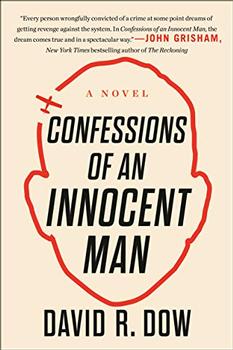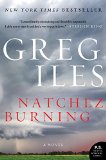Summary | Excerpt | Reading Guide | Reviews | Beyond the book | Read-Alikes | Genres & Themes | Author Bio

Emma Flint's fine debut is all about smashing boundaries. Once upon a time, mysteries and noir novels were not considered literary fiction. While that boundary has already been broken – think Umberto Eco's The Name of the Rose or Michael Chabon's The Yiddish Policemen's Union – how about the notion that true crime can cross over into literary fiction territory? Flint, a longtime fan of true crime stories, has succeeded in melding that genre into Little Deaths, a novel about a mother accused of murdering her children.
It's the mid-1960s and Ruth Malone becomes a single mom after she asks her husband Frank for a divorce. Such an act is all but unheard of in her middle class Queens (New York) neighborhood. Frank moves out, but not without promising to fight her for custody of their two children, five-year-old Frankie, Jr. and four-year-old Cindy. Ruth can't help it if she has a kind of Marilyn Monroe quality about her that attracts men. She makes no bones about relishing the attention. After all, if it gets her bigger tips in the bar where she waitresses at night, it helps to put food on the table for the kids.
So, yeah, she cheated on Frank. Yeah, she likes to dress in clothes that show off her body. And she never leaves the apartment without putting on her "face." Cindy admires her mom's beauty, "her powdered cheeks, her sooty lashes, the sticky cupid's bow of her lips… You look like a princess-lady," Cindy declares. But just because Ruth likes to entertain men, occasionally letting them sleep over, it doesn't mean she's not a good and loving mother. Frank wants to prove otherwise.
However, when the children disappear one stifling July day and are later found murdered, Frank is tender and supportive. And while both he and Ruth are still reeling from their sudden loss, the local police have already decided who killed the kids. Evidence? As one investigating officer puts it:
She don't look how a woman should look when her kids go missing. She works nights. Two little kids and she's a waitress in some goddamn bar…And the apartment was a mess – ton of empty liquor bottles in the trash…Turns out she's got a record as well. We've had guys from the station at that address a few times. Noise, drinking, all that.
Ruth's story unfolds in retrospect, as she recalls the events that put her behind bars. Another point of view comes from a tabloid reporter who's trying to curry favor with his editor by investigating the lurid story that will sell newspapers. In the big city for the first time, reporter Pete Wonicke sees Ruth through the eyes of her judgmental neighbors and the police, so it isn't hard to portray her as a potential suspect, and even better that she's a sexy one. But before long, Pete's small-town values impel him to put himself in Ruth's shoes. Soon he's just about the only one in the world who believes her claims of innocence. In fact, he begins a one-man campaign to prove her innocent of the double homicide, losing his job in the process.
While Ruth's story is richly textured, Flint's cop dialogue and courtroom scenes would feel right at home in a true crime novel. Little Deaths' plot structure and rhythm make it all work as chapters swing between points of view and time frames. My only reservation, which kept my rating at a 4, has to do with scene setting. If I didn't know that this is based on a true story that took place in 1965-6, I would've had a hard time guessing. A minor trade-off in a superb mystery.
![]() This review was originally published in The BookBrowse Review in February 2017, and has been updated for the
October 2017 edition.
Click here to go to this issue.
This review was originally published in The BookBrowse Review in February 2017, and has been updated for the
October 2017 edition.
Click here to go to this issue.

If you liked Little Deaths, try these:

Confessions of an Innocent Man
by David R. Dow
Published 2020
A thrillingly suspenseful debut novel, and a fierce howl of rage that questions the true meaning of justice.

by Greg Iles
Published 2015
Rich in Southern atmosphere and electrifying plot turns, Natchez Burning is tense and disturbing, the most explosive, exciting, sexy, and ambitious story Greg Iles has written yet.
Your guide toexceptional books
BookBrowse seeks out and recommends the best in contemporary fiction and nonfiction—books that not only engage and entertain but also deepen our understanding of ourselves and the world around us.